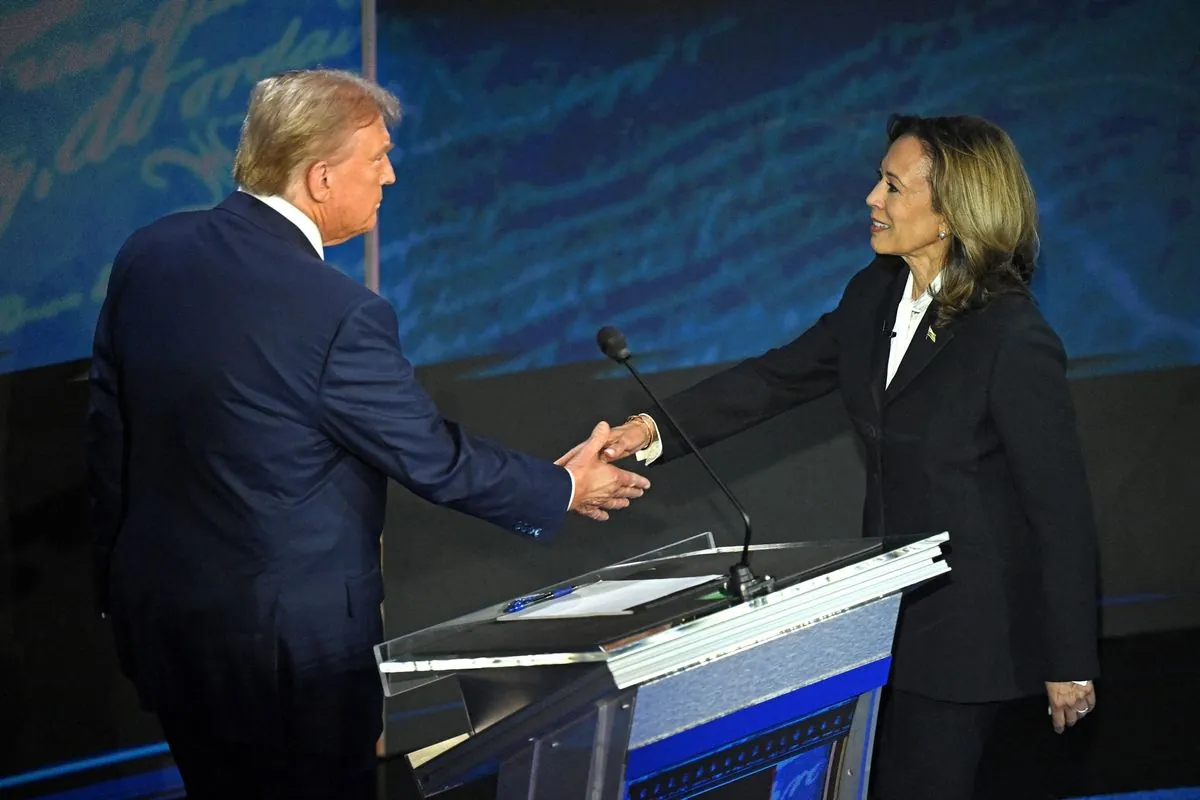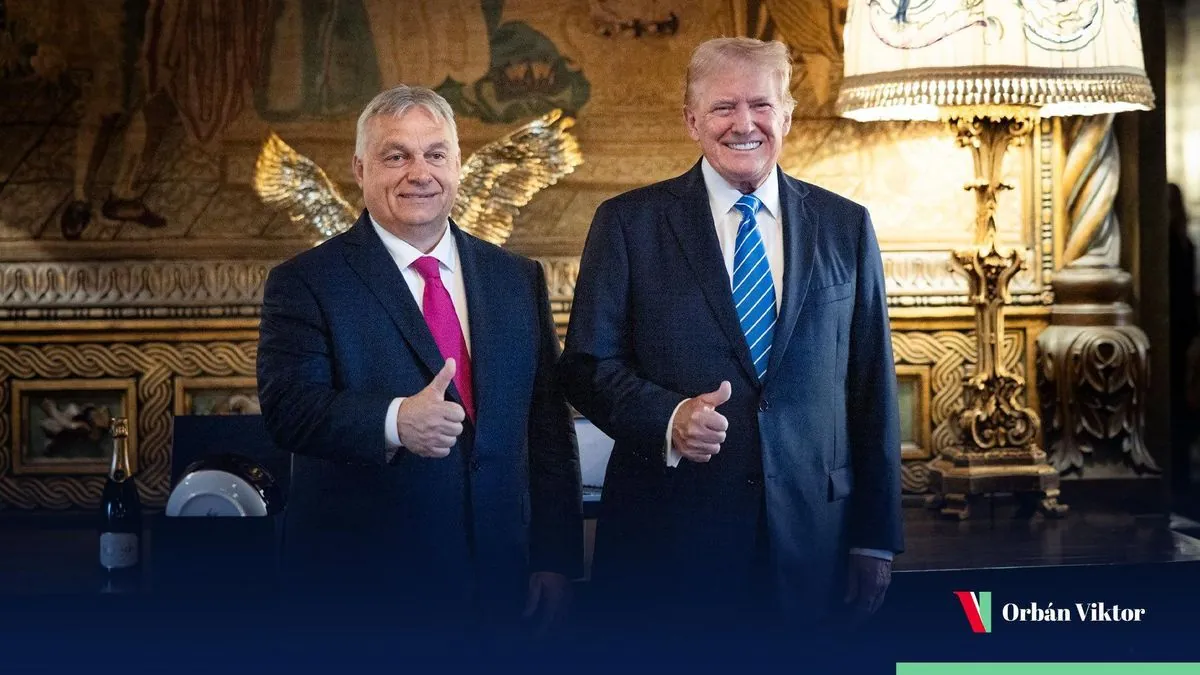Trump and Harris Clash on Foreign Policy in Pivotal Presidential Debate
Former President Trump and Vice President Harris faced off in a crucial debate, addressing key foreign policy issues including Ukraine, Israel-Hamas conflict, China relations, and Afghanistan withdrawal.

In a pivotal moment of the 2024 U.S. presidential race, Donald Trump and Kamala Harris engaged in a high-stakes debate on September 10, just 55 days before the November 5 election. The event, hosted by ABC News in Philadelphia, marked their first and potentially only face-off in an unusual election cycle.
The debate occurred against the backdrop of significant political developments, including Joe Biden's unexpected withdrawal from the race following a poor debate performance in June, and an attempted assassination of Trump in July. These events have reshaped the political landscape, making this debate crucial for both candidates.
Foreign policy dominated much of the discussion, with the candidates presenting contrasting views on several key issues:
Russia-Ukraine Conflict:
Trump pledged to end the war swiftly if elected, claiming he would negotiate with both sides. He emphasized his relationships with world leaders, including Vladimir Putin and Volodymyr Zelensky, and cited support from Hungarian Prime Minister Viktor Orban. Harris, in contrast, highlighted her role in the Biden administration's response to the invasion, including providing military aid to Ukraine.

Israel-Hamas Conflict:
Harris reaffirmed support for Israel's right to self-defense while expressing concern for Palestinian civilians. She advocated for a two-state solution, maintaining a stance consistent with her previous statements. Trump made unsubstantiated claims about Harris's views on Israel and Arabs, offering no specific plans for addressing the conflict.
China Relations:
The debate touched on economic competition with China, with Trump defending his tariff policies and proposing even higher tariffs if elected. Harris criticized this approach, warning of potential economic consequences. The discussion highlighted the ongoing importance of semiconductor technology in U.S.-China relations.
Afghanistan Withdrawal:
On the third anniversary of the U.S. withdrawal from Afghanistan, Harris defended the Biden administration's decision while criticizing Trump's negotiations with the Taliban. Trump defended his record and made claims about military equipment left behind during the withdrawal.
The debate underscored significant differences in foreign policy approaches between the candidates, reflecting broader ideological divides within the American electorate. As the election approaches, these contrasting visions for America's role on the global stage are likely to play a crucial role in voters' decisions.
"What I'll do is I'll speak to one and I'll speak to the other. I'll get them together."
This statement reflects Trump's confidence in his negotiation skills, a recurring theme in his foreign policy approach. However, the complexity of international conflicts, particularly the Russia-Ukraine war, suggests that such negotiations may be more challenging than implied.
As the campaign enters its final stretch, both candidates will need to further articulate their foreign policy visions to address the complex global challenges facing the United States.


































